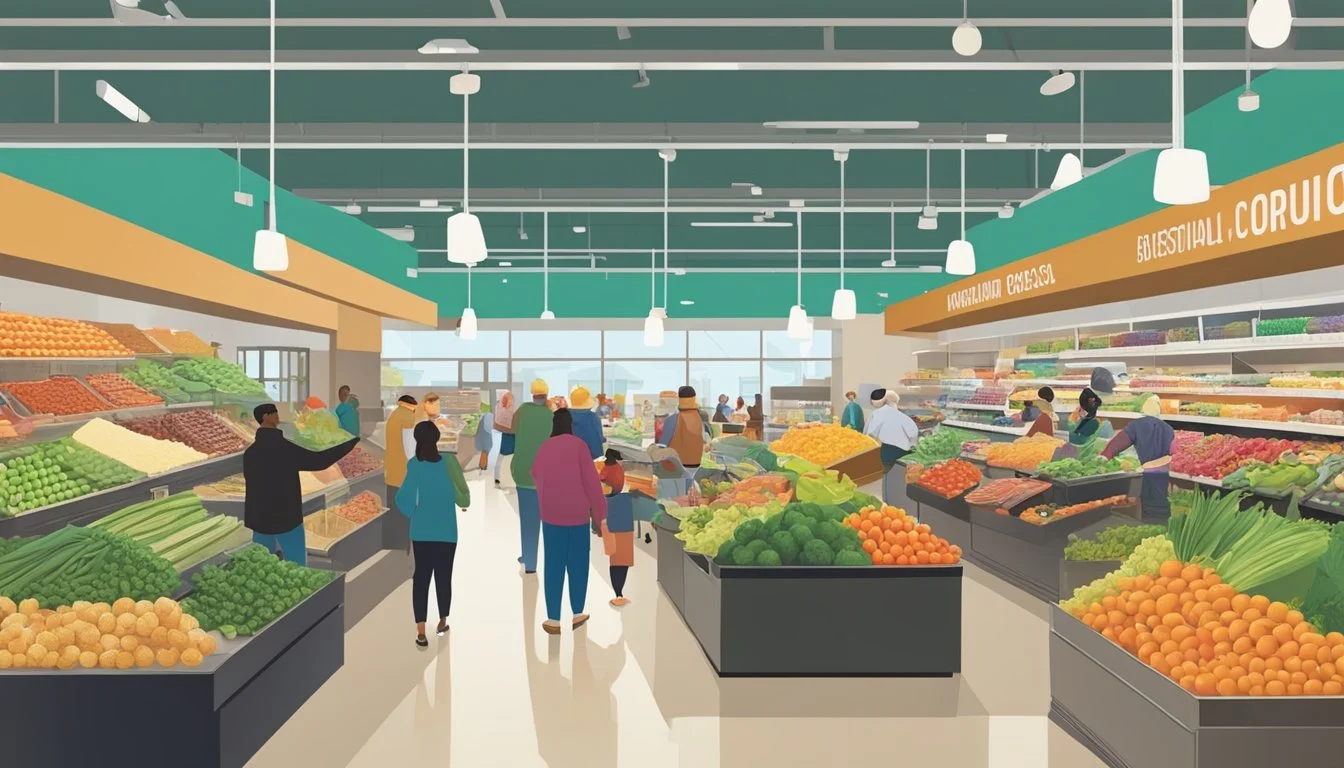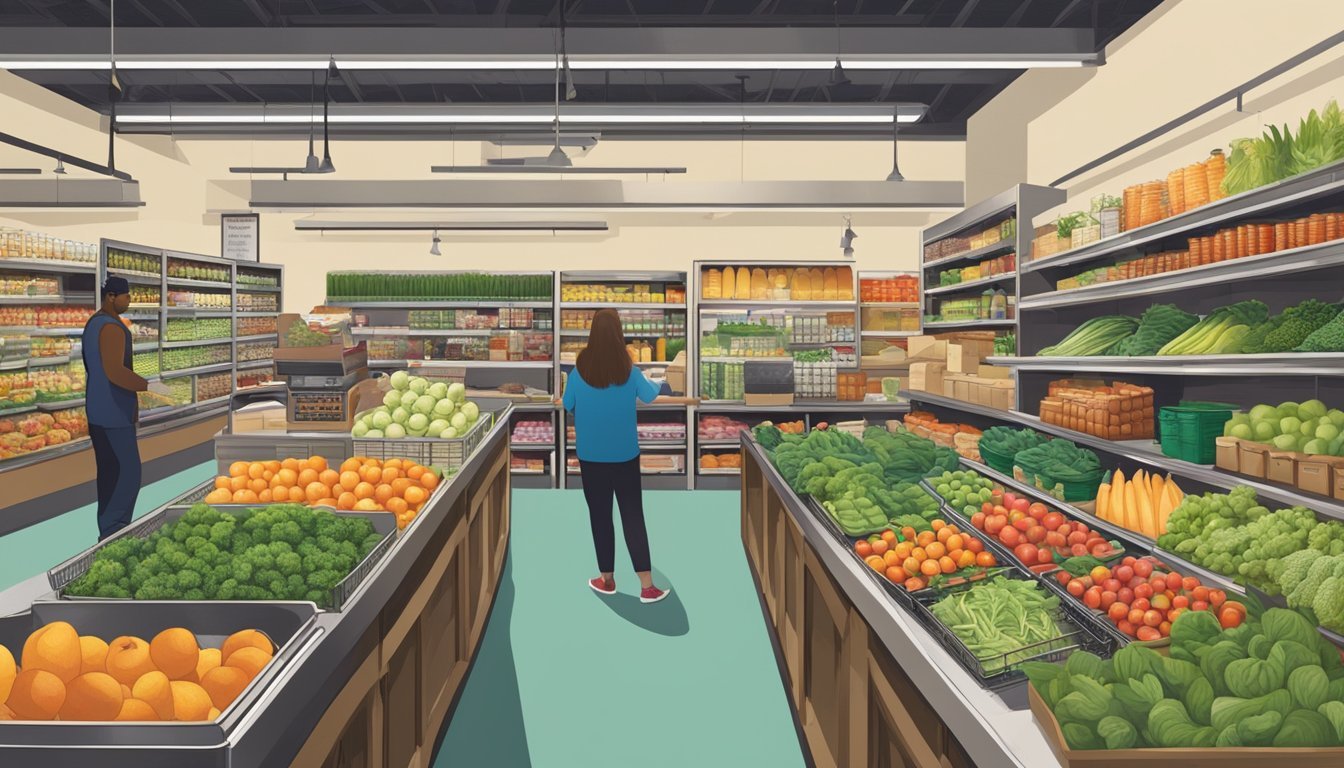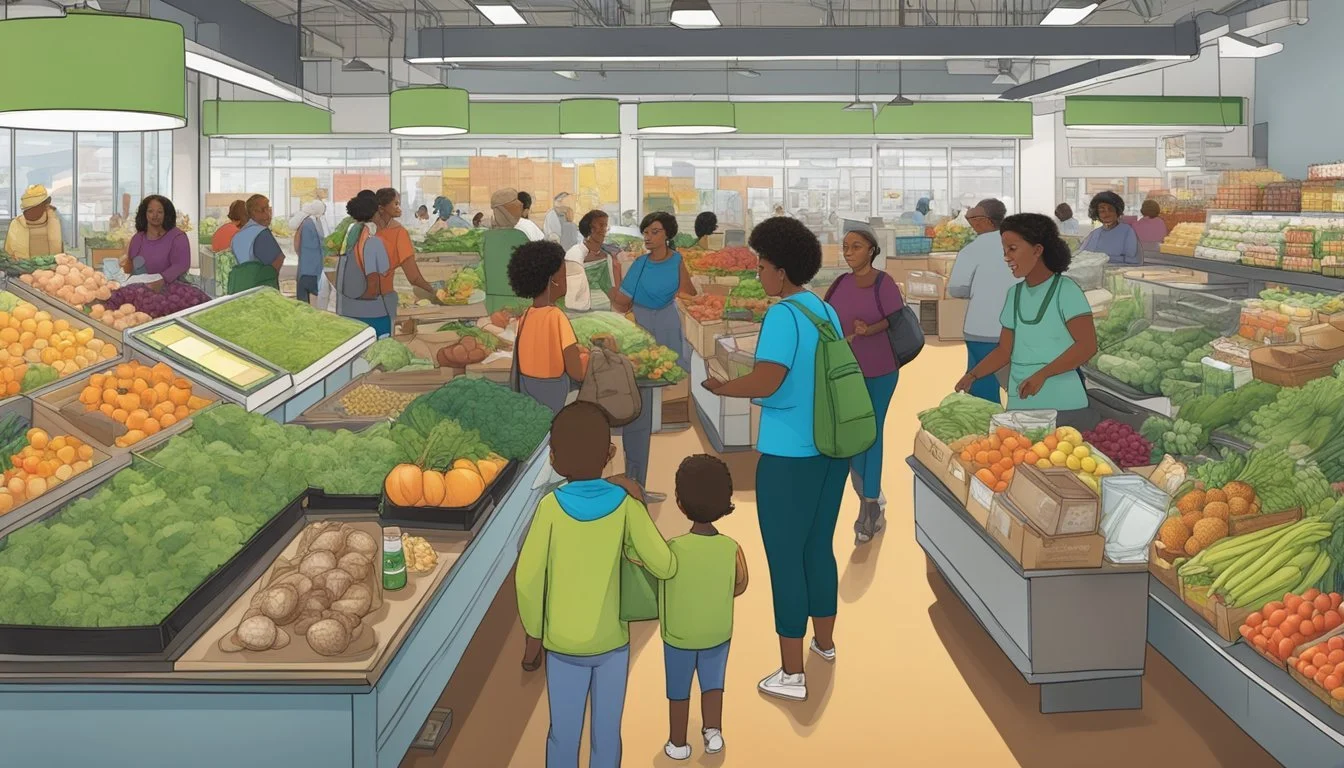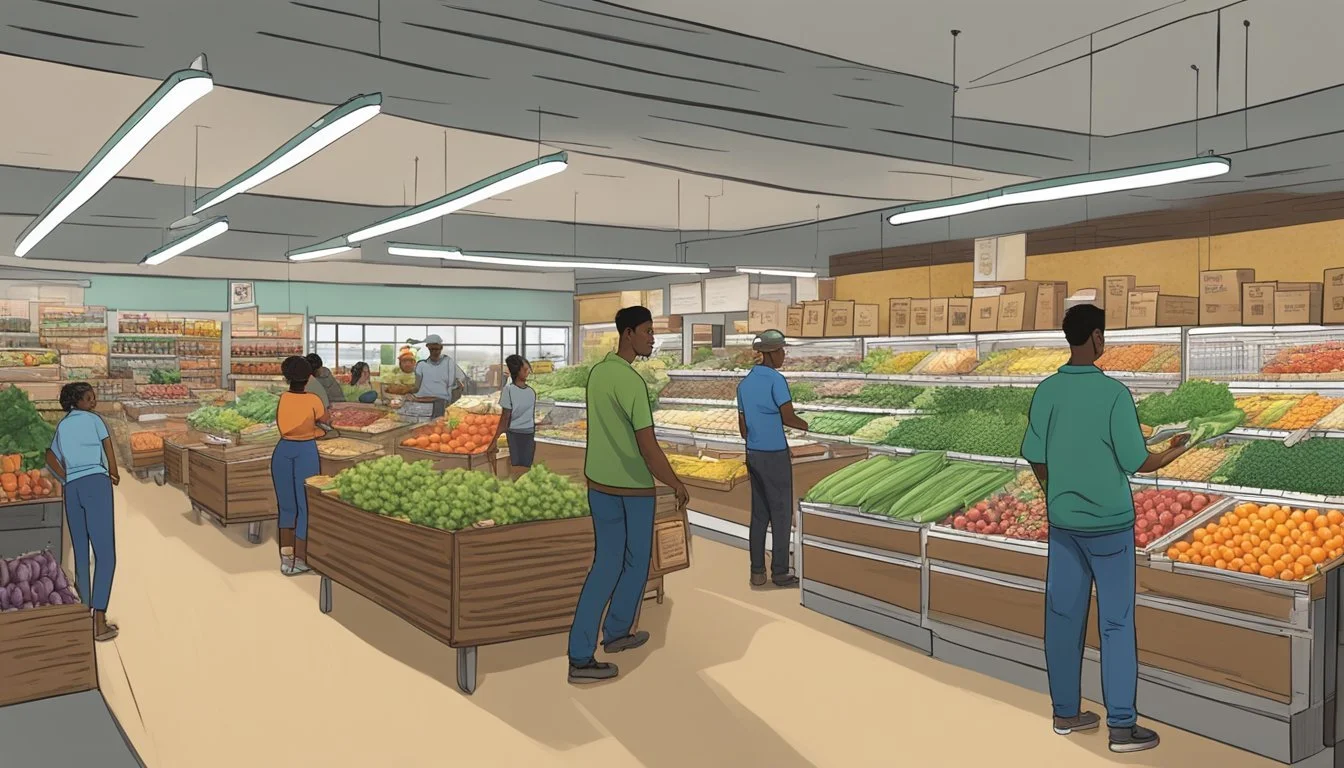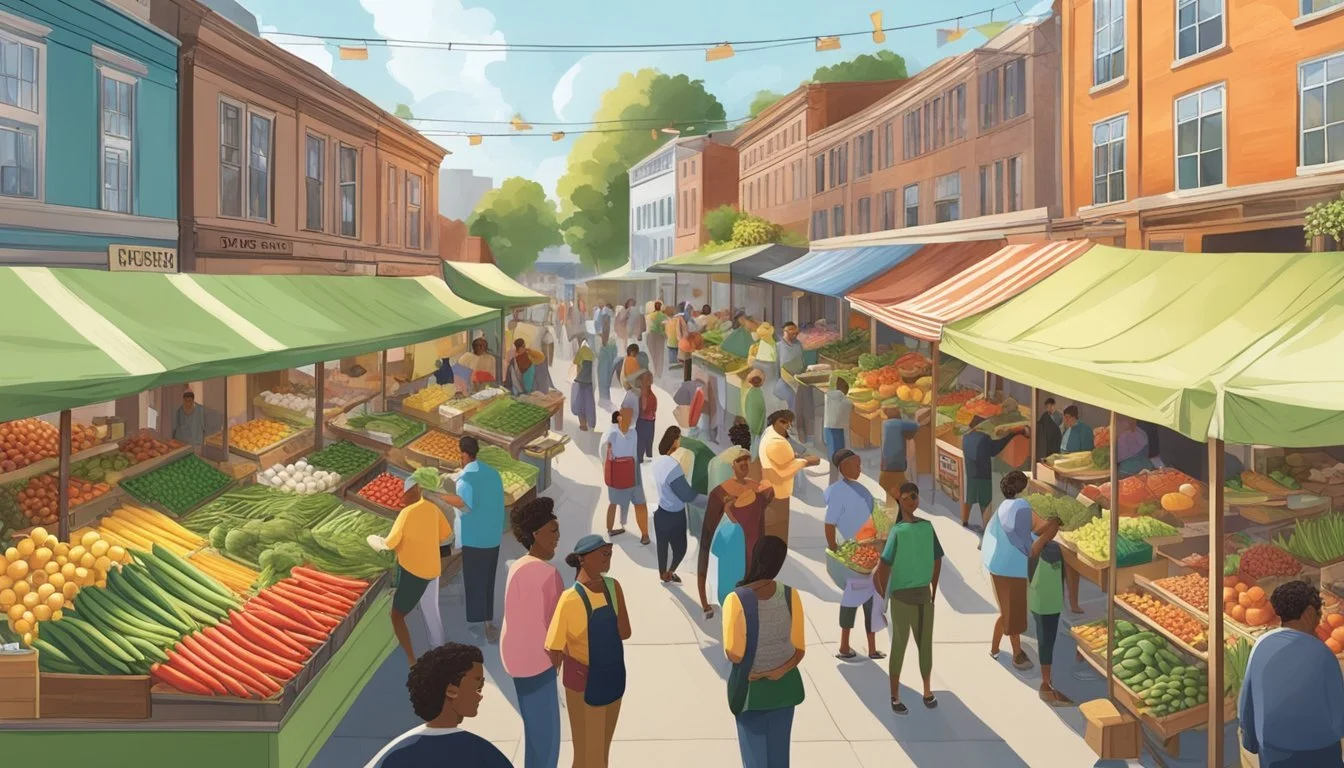Guide to Food Co-Ops in Detroit, MI
Your Essential Resource
Food cooperatives (co-ops) have emerged as an important model for providing communities with access to healthy, affordable food options. In Detroit, Michigan, these member-owned establishments are playing a crucial role in addressing the local demand for full-service grocery stores. These co-ops, often led by community members themselves, offer a diverse array of food choices with an emphasis on nutrition and education.
One such example is the Detroit People's Food Co-op located in the historic North End neighborhood. This Black-led, member-owned cooperative is part of the larger effort to increase the availability of quality fresh food in the city. Situated within the Detroit Food Commons building at 8324 Woodward Avenue, it reflects a significant community endeavor to support local food sovereignty and economy.
Detroit's approach to food co-ops emphasizes democratic member control, allowing for active participation in policy setting and decision-making. This not only fosters accountability but also ensures that the services provided are closely aligned with the unique needs of the Detroit residents. The co-ops strive to be more than just shopping destinations; they aim to be educational resources that empower their members and contribute to the overall health of the community.
History of Food Co-Ops in Detroit
Detroit's history with food co-operatives dates back over several decades, establishing a community-driven approach to food security and food justice. The Detroit People's Food Co-op (DPFC), led by the Detroit Black Community Food Security Network, exemplifies this tradition by advocating for improved access to healthy food options for residents, particularly within the African American community.
In the past, initiatives like the Cass Corridor Food Co-op, which closed in 2004, were central to the community for over 20 years. DPFC aims to fill this void by fostering a cooperative model of ownership where decisions are made democratically by member-owners. Their mission is to empower the community not just by providing access to nutritious food but also through education and engagement in food policy.
Year Milestone 1971 Faculty and students began a food initiative, selling affordable, simple food items. 2004 The long-established Cass Corridor Food Co-op closed, leaving a gap. 2023 DPFC set to open, revitalizing the co-op model in Detroit.
The Detroit People’s Food Co-op is designed to be a Black-led endeavor, addressing food security concerns and aiming to rectify the scarcity of Black-owned grocery establishments in Detroit. It upholds the principles of food sovereignty and emphasizes the need for social equity in the local food system. The cooperative is part of a larger ecosystem including Detroit Food Commons, intending to provide a sustainable and self-reliant model for urban communities in Detroit.
Benefits of Food Co-Ops
Food co-ops offer a variety of advantages, from bolstering the local economy to providing clear benefits for their members. They operate with a focus on sustainability and community-centered values.
Economic Impact on Local Community
Food co-ops are a significant boon to the local economy. By sourcing from local producers, they keep money circulating within the region, supporting community-owned businesses and fostering economic development. In Detroit, investment in a grocery store that is community-owned translates to residents having a stake in their local economy, encouraging the growth of related businesses and jobs.
Advantages for Member/Owners
Members of a co-op often enjoy benefits such as discounts or dividends based on the cooperative's success. As stakeholders, they have a voice in the co-op's operations, contributing to a business model that is democratic and inclusive. Member/owners of Detroit's food co-op also gain access to healthy food options and food education, directly addressing their needs and preferences.
Support for Local Producers
By partnering with local producers, food co-ops ensure that a portion of their revenue supports the local agriculture sector. This model promotes sustainable practices, as food is sourced closer to where it is consumed, reducing carbon footprint. In Detroit, the food co-ops help maintain a thriving network of producers, which in turn stabilizes supply chains and contributes to a more resilient local food system.
Key Food Co-Ops in Detroit
Detroit offers residents access to several food co-ops, each with its unique contribution to local food security and community empowerment.
Detroit People's Food Co-Op
The Detroit People's Food Co-Op is a pioneering Black-led, member-owned grocery cooperative in the historic North End. Located at 8324 Woodward Avenue within the Detroit Food Commons building, it aims to address the shortage of full-service grocery stores in Detroit. It provides quality, healthy food options and serves as a community hub for nutrition education and social interaction.
Ypsilanti Food Co-Op
While not in Detroit proper, the Ypsilanti Food Co-Op plays a significant role in the greater Detroit area's food ecosystem. This co-op is known for its commitment to offering organic produce, sustainable food options, and for being a local food education resource. It supports local growers and producers, strengthening the regional food economy.
Marquette Food Co-Op
Again, outside of Detroit but influential in Michigan's co-op scene, the Marquette Food Co-Op emphasizes community health and well-being through its selection of natural, local, and organic foods. Its initiatives extend beyond just providing grocery services, as they also include educational programs about nutrition and sustainability.
Greentree Co-Op
The Greentree Co-Op, situated in Central Michigan, is a dynamic part of the state’s cooperative movement. It strives to source high-quality, ethical, and organic products often from local farms and businesses. The co-op serves as a central point for community engagement, working towards a more sustainable food system.
How Food Co-Ops Work
A food cooperative or co-op is a grocery store owned and operated by its members who decide on the store's policies and offerings, emphasizing democratic control and sustainable practices.
Member/Owner Structure
In the member/owner structure of a food co-op, individuals purchase a share or membership to become part-owners. Member/owners have a say in the operation of the store and help shape its inventory, ensuring that the products offered align with their values and needs for sustainability. Each member/owner contributes to the collaborative nature of the co-op.
Democratic Control and Voting
A core principle of food co-ops is democratic control, where each member/owner has one vote, regardless of the extent of their investment or purchases. This allows for an equitable model of governance. Member/owners exercise their right to vote on essential issues such as:
Board of Directors elections: Choosing who will represent their interests.
Major policy changes: Deciding on directions that affect the co-op's operations and sustainability.
Financial Structure
The financial structure of food co-ops typically involves allocating surpluses in a way that benefits the member/owners and the co-op's growth. Investment may be directed towards:
Developing the co-operative: Creating reserves to secure and expand the co-op.
Member benefits: Rewarding members in proportion to their transactions with the co-op.
Community support: Putting funds towards activities approved by the member/owners that align with community empowerment and economic development.
Starting a Food Co-Op in Detroit
Embarking on the journey to start a food co-op in Detroit involves meticulous planning, securing the necessary finances, and cultivating a strong, committed membership base. These core aspects ensure the foundation of a co-op that's organized, well-funded, and community-supported.
Initial Steps and Organization
The first phase involves laying out a clear plan of action. Prospective founders should conduct thorough research on local demand and develop a business plan that reflects the mission and proposed structure of the co-op. Engaging with the community to gauge interest and gain insights is crucial for shaping the organization. Forming a steering committee, often comprising volunteers driven by the cause, can provide the necessary leadership to move the project forward.
Funding and Investment Options
Finding the capital to start a food co-op is a multifaceted process, usually necessitating a mix of fundraising activities, member investments, and loans. Aim to:
Host community fundraising events: These can both raise funds and cultivate community support.
Member investments: Encourage future patrons to become founding members by purchasing shares in the co-op.
Secure loans: Explore options like the Detroit Community Loan Fund, which offers financial support to initiatives that benefit the community.
Building a Membership Base
A strong membership base is the backbone of any member-owned cooperative. Implement strategies to grow a diverse and extensive membership that reflects the Detroit community. To achieve this, one should:
Clearly communicate the benefits of joining the co-op, like having a say in business decisions and potential financial returns.
Engage with the local community through targeted outreach programs.
Provide educational resources about cooperative principles and food justice to inspire local involvement.
Ensure that each member understands their role in the co-op's success, fostering a sense of ownership and community pride.
Challenges Facing Food Co-Ops
Food co-ops in Detroit face a series of challenges that impact their ability to provide affordable, equitable, sustainable, and organic produce to their communities.
Accessibility and Affordability: Food co-ops strive to make healthy food accessible and affordable. However, they often grapple with high operational costs which can lead to higher prices for consumers. Co-ops must find a balance between covering costs and keeping prices low for their members.
Supply Chain and Sustainability: Establishing a consistent supply of organic produce is critical for food co-ops. They need to build networks with local farmers who follow sustainable practices, which can be limited in urban areas like Detroit. Managing these relationships, while ensuring a steady supply of products, represents a significant challenge.
Competition: Larger grocery chains pose a significant threat to food co-ops. Their buying power can push down prices, making it more difficult for co-ops to compete on cost while maintaining their commitment to ethical and sustainable sourcing.
Member Engagement: The success of a co-op often depends on active participation from its members. Engaging the community to invest in memberships and partake in operational roles can sometimes be a hurdle.
Equity and Education: Co-ops have the potential to be powerful tools for food justice and equity. However, this requires continuous effort to educate the community on the benefits of co-op membership and the value of organic, locally-sourced food. Outreach and education are resource-intensive and necessary for a co-op's sustainable growth.
In summary, while food co-ops in Detroit are poised to make a significant impact on food justice, they must navigate a complex set of challenges to achieve their mission.
Community and Education
The Detroit People's Food Co-op plays a significant role in community enrichment and educational outreach. Focusing on both food education programs and community development initiatives, it serves as a catalyst for social justice and community empowerment through access to nutritious food and knowledge.
Food Education Programs
The co-op dedicates efforts to educate the community about healthy eating habits, nutrition, and food sustainability. Education is central to their mission, aiming to empower residents with the knowledge to make informed food choices. Programs may include:
Workshops: Interactive sessions focusing on healthy food preparation and nutrition.
Seminars: Discussions on sustainable agriculture and food justice led by experts in the field.
Community Development Initiatives
Through the Detroit People's Food Co-op, the organization becomes ingrained in the fabric of community development. As part of its initiatives, the co-op:
Engages in partnerships with local businesses, which helps to stimulate the local economy.
Implements projects addressing food insecurity, reflecting their commitment to social justice and equitable access to healthy food.
Healthy Eating and Food Options
In Detroit, the growing food co-op movement is pivotal in providing residents with a plethora of healthy eating options. The focus is on access to fresh produce, availability of organic and natural foods, and catering to special dietary needs.
Access to Fresh Produce
Detroit People’s Food Co-op exemplifies how community-owned businesses can directly contribute to improved healthy food access. Members and non-members alike can benefit from the co-op’s commitment to offering fresh, locally sourced fruits and vegetables — a cornerstone of nutritious eating.
Organic and Natural Foods
The importance of chemical-free and sustainably farmed food cannot be overstated. Food co-ops in Detroit often feature a range of organic produce that supports both the health of consumers and the local ecosystem. This dedication ensures that individuals have access to foods that are not only healthy but also align with eco-friendly practices.
Special Dietary Needs
Food co-ops value the dietary requirements and preferences of their diverse clientele. They provide a variety of food products that cater to different needs, such as gluten-free, lactose-free, and vegetarian options. By prioritizing such an inclusive approach, these cooperatives ensure that all individuals have the opportunity to maintain their specific health and lifestyle choices.
Impact of Food Co-Ops on Food Security
Food cooperatives (co-ops) in Detroit are a pivotal force in enhancing food security within the local community. By their very model, food co-ops help make food more accessible and affordable to their members. Unlike conventional grocery stores, they are owned and operated by the members, who have a say in the operations and the kinds of food sold at the store.
Member-driven decisions frequently lead to a greater focus on offering healthier food options, often at more affordable prices, contributing to better food access. Additionally, many food co-ops prioritize sourcing from local producers, strengthening food commons and supporting local economies.
Detroit's emerging food co-ops emphasize:
Inclusivity: Ensuring a diverse range of community members can participate and benefit.
Affordability: Keeping prices fair to address economic barriers faced by many.
Healthy options: Prioritizing the availability of nutritious food to improve public health outcomes.
These co-ops' commitment to the community extends to education on food and nutrition, which fosters a well-informed consumer base. Moreover, their involvement in food justice and equity initiatives further aligns with the broader goals of ensuring all community members have reliable access to sufficient, safe, and nutritious food.
By actively participating in food systems that are cooperative and community-centered, food co-ops in Detroit are redesigning the landscape of food security. They create not just shopping venues but hubs for social and economic change, directly addressing the challenges in food distribution and access.
Future of Food Co-Ops in Detroit
As Detroit anticipates growth within the local food sector, food co-ops have become a pivotal element. They are set to enhance community access to nutritious food, while also serving as a platform for economic empowerment and social collaboration, particularly within the Black community.
Expanding the Co-Op Network
The Detroit People's Food Co-op is an upcoming community-owned grocery store, expected to open on May 1. The co-op, situated within the larger Detroit Food Commons development, signifies an important milestone for the city's North End neighborhood. By offering membership to residents for a one-time fee, it has already amassed around 2,300 members and expresses its commitment to create at least 27 full-time jobs.
This Black-led initiative underscores Detroit's commitment to not only expand the co-op network but also to ensure that these establishments are founded on principles of inclusiveness and collective ownership. The growth of such networks promises to address food deserts and boost local economies through sustainable practices and community governance.
Innovative Projects and Partnerships
Detroit Food Commons: an innovative project designed to foster a nurturing environment for sustainable food practices and serve as an anchor for the Detroit People’s Food Co-op. The development of this $21.3 million property, which has already been in construction for nearly two years, exemplifies a significant investment in the community’s future.
Partnering with entities such as the W.K. Kellogg Foundation, Detroit's food co-ops are not only expected to increase access to fresh and affordable produce but also to provide grounds for community empowerment and local job creation in 2024 and beyond. The vision adopted by these co-ops is deeply intertwined with the fabric of the city, ensuring that growth is equitable and reflective of Detroit's diverse populations.

